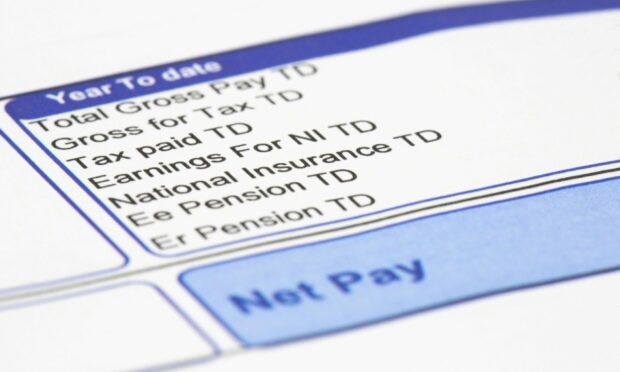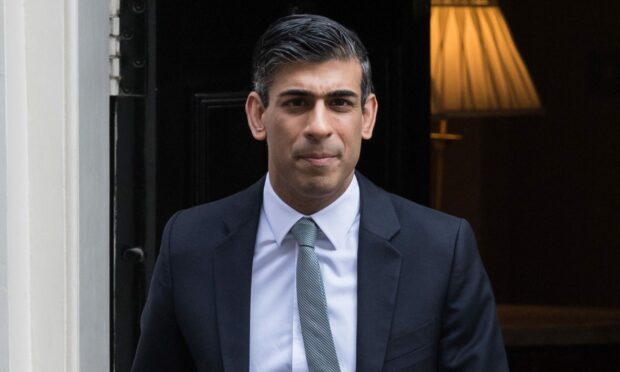Yet another rise on costs for millions of people and businesses came into force on 6 April as an increase in national insurance contributions (NICs) starts.
The rise in national insurance (NI) was announced in September as a measure to help ease the burden on the NHS.
However it comes at a time of spiralling inflation and massive rises in gas and electricity bills as many face a cost of living crisis.
Why charge more now?
The UK Government predicts that the tax rise will raise £39 billion over the next three years to help reduce the Covid-induced NHS backlog and later reform adult social care for the long-term.
The rise has also been dubbed the health and social care levy, which will be legally in place next year.
Contributions are paid with tax and employers will take it from wages before employees are paid, with workers seeing the effects in their next weekly or monthly pay packet.
People have been urged to look at their payslips to see the effects of the changes on their contributions.
Some will pay more, some will pay less
Employees, businesses and the self-employed will pay an extra 1.25p in the pound.
However due to an intervention by chancellor Rishi Sunak in his recent spring statement, lower earners will pay less once changes to thresholds come into place.
Over the next 12 months, anyone earning less than £34,000 a year will pay less in national insurance than they did the previous year, while those earning more will see their payments rise.
Instead of paying National Insurance contributions of 12% on earnings up to £50,270 and 2% on anything above that, employees will now pay 13.25% and 3.25% respectively.
The self-employed will see equivalent rates go up from 9% and 2% to 10.25% and 3.25%.
But take home pay for someone earning £50,000 will fall by £464 per year.
And while the change in contribution applies across the UK, Scottish taxpayers with income under £27,850 will pay less income tax and NI than their counterparts in the rest of the UK, according to the Chartered Institute of Taxation (CIOT).
The Freelancer and Contractor Services Association (FCSA) have warned certain self-employed people are being hit with a double whammy.
It estimates that freelancers working for clients through a so-called umbrella company are losing almost 2.5% of their current take-home pay, rather than the 1.25% of regular employees.
Employers have
While many employers are facing increased costs including nics and mimimun wage rates which increased at the start of the month, the impact was eased for many small businesses when the chancellor announced an increase in employment allowance to £5,ooo in his spring statement.
It was estimated this would save up to £1,000 for about half a million firms in the UK.
Andrew McRae, FSB’s Scotland policy chair, said: “The extension of the employment allowance was a sensible move which will mitigate the impact of the increase in employers’ national insurance contributions for many of the smallest Scottish firms.
“But policymakers need to understand that many businesses face staggering increases to other overheads.
“For example on the energy front, local and independent businesses neither have the protections of consumers nor the buying power of big companies.
“Many operators will have to find thousands of pounds more a year to pay for their energy bill alone. And, rising fuel prices put pressure on all sorts of businesses dependent on vehicles for their operations.
“That’s everyone from delivery drivers through to tradespeople.
“Whenever there’s an opportunity, decision-makers in Edinburgh and London must take action to relieve the pressure on smaller businesses.”
Controversial changes
With the new levy, the Tory administration has now increased the tax burden to its highest point in 70 years.
April has been dubbed “the cruellest month” in the cost of living crisis as people and businesses face a range of increases to their energy prices and relentlessly increasing inflation – and it’s worse for those in the north and north-east of Scotland.
The Prime Minister defended the decision to hike national insurance for millions of workers, arguing that the manifesto-breaking rise is “necessary, fair and responsible”.
He said: “We must be there for our NHS in the same way that it is there for us.
“Covid led to the longest waiting lists we’ve ever seen, so we will deliver millions more scans, checks and operations in the biggest catch-up programme in the NHS’ history.
“We know this won’t be a quick fix, and we know that we can’t fix waiting lists without fixing social care.
“Our reforms will end the cruel lottery of spiralling and unpredictable care costs once and for all and bring the NHS and social care closer together.
“The levy is the necessary, fair and responsible next step, providing our health and care system with the long term funding it needs as we recover from the pandemic.”
From April 2023 onwards, the NI rate will decrease back to the 2021-22 level, with a new 1.25% health and social care levy legally introduced.



